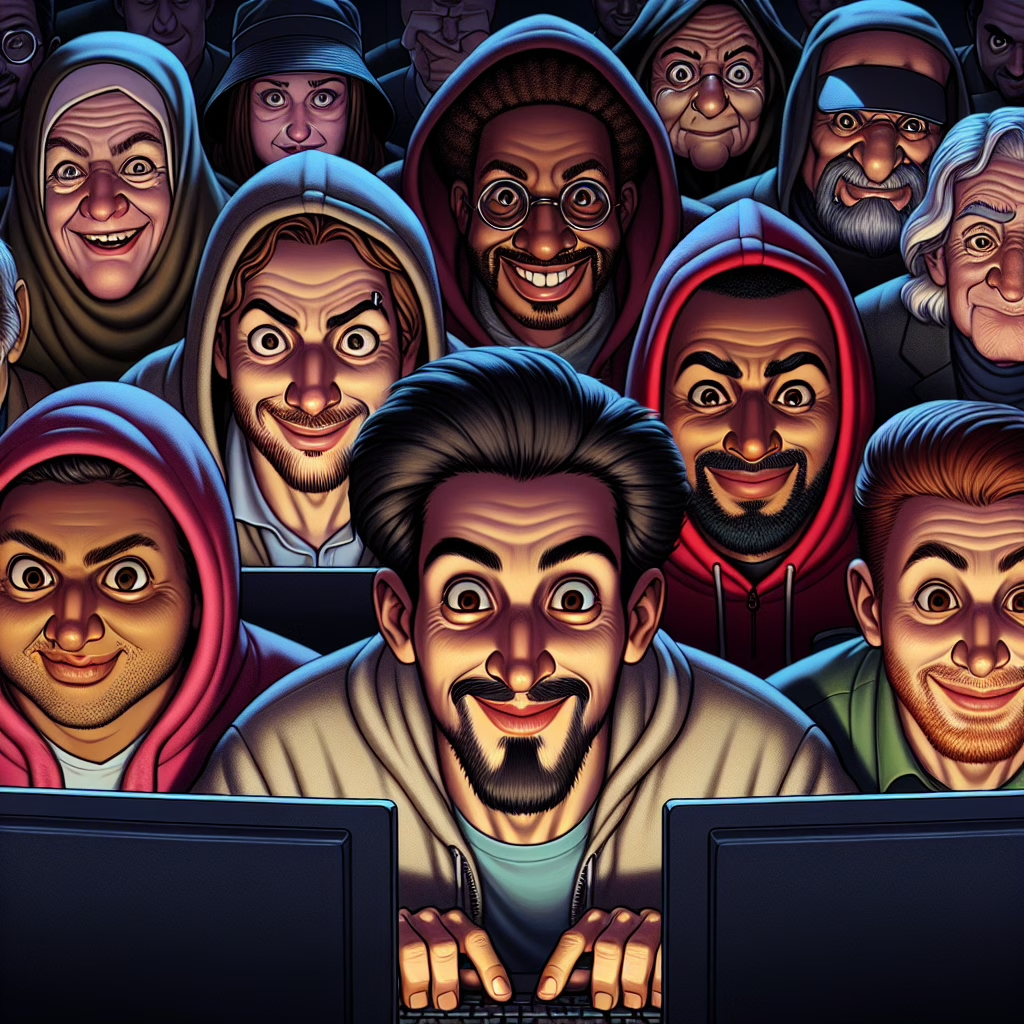In the thrilling world of cybersecurity, where firewalls are our knights in shining armor, lurking in the shadows are some of the most dangerous hackers you’ve never heard of. These digital warriors may not have the same name recognition as your household celebrity hackers (we’re looking at you, Mr. Anonymous), but they wield a keyboard like a sword and can bring systems to their knees faster than you can say ‘phishing scam.’
Meet the Unsung Heroes of Cybercrime
Let’s face it—cybersecurity isn’t just about protecting your grandma’s Facebook account from being hacked. It’s a multi-billion dollar industry battling an array of digital villains. Among these villains are hackers whose skills could rival those of tech geniuses in Silicon Valley, yet they prefer to stay under the radar.
These clandestine figures operate in a world where anonymity reigns supreme. They might not be sporting capes or flying through the internet, but their ability to exploit vulnerabilities makes them formidable foes. And while we may not have their names memorized like we do with Taylor Swift’s discography, their impact on global security is anything but trivial.
The Cyber Underbelly: More Than Just Script Kiddies
Many people think of hackers as basement-dwelling teenagers who might accidentally download malware while trying to watch cat videos. However, the reality is much more complex. The most dangerous hackers you’ve never heard of often come from organized crime groups or even state-sponsored operations.
These cybercriminals possess advanced skills and tools that allow them to infiltrate systems ranging from small businesses to large government agencies. Their tactics include ransomware attacks that make headlines and phishing schemes so clever that even your tech-savvy friend could fall for them.
For example, one notorious group is known for its ability to compromise major corporations by targeting supply chains—yes, the very chains that keep your online shopping habits alive and well! They cleverly exploit software vulnerabilities, which makes them sound like modern-day Robin Hoods—except instead of stealing from the rich to give to the poor, they simply pocket millions while leaving chaos in their wake.
The Art of Deception: Social Engineering
Another fascinating aspect of these hackers is their mastery of social engineering. This isn’t just about hacking into someone’s email; it’s about understanding human psychology. They know how to manipulate individuals into giving away sensitive information, often using tactics that involve impersonation or urgency.
Imagine receiving an email from what appears to be your boss asking for immediate access to sensitive files. Before you know it, you’re clicking links that lead you straight into a cyber trap! These hackers understand that sometimes the easiest way to breach security isn’t through technical prowess but by outsmarting humans instead.
Why Should We Care About These Hackers?
You might wonder why we should be concerned about these elusive hackers who prefer to remain nameless. Well, for starters, their actions can have widespread consequences. Data breaches can lead to identity theft, financial loss, and even national security threats.
Furthermore, as technology evolves, so do their methods. With advancements like artificial intelligence and machine learning at their disposal, they can automate attacks at unprecedented scales. Yes, that means an army of bots could potentially invade your favorite online store while you’re busy binge-watching your latest Netflix obsession!
Staying One Step Ahead: What Can Be Done?
So what can we do to protect ourselves from these digital marauders? The first step is awareness! Knowing about the most dangerous hackers you’ve never heard of is crucial in staying informed. Regularly updating your passwords and using two-factor authentication are essential practices.
Additionally, businesses must invest in robust cybersecurity measures and training for employees on recognizing phishing attempts. After all, a well-informed employee is like having an extra layer of security—one that doesn’t require a cape or fancy gadgets!
Here are some practical tips to enhance your defenses against these cyber threats:
- Implement strong password policies and encourage the use of password managers.
- Regularly conduct cybersecurity training for all employees.
- Utilize advanced firewall systems and intrusion detection software.
- Keep all software and systems updated to ensure the latest security patches are applied.
- Establish an incident response plan to quickly address any breaches.
A Final Thought
In conclusion, while we may not know all the names behind the most dangerous hackers you’ve never heard of, understanding their tactics can help us defend against them. Cybersecurity is an ongoing battle—one that requires vigilance, humor, and perhaps a good cup of coffee!
If you’ve enjoyed this exploration into the shadowy world of cybercrime or have your own thoughts on how to combat these invisible threats, feel free to share your insights in the comments below!
A special thanks to Wired for shedding light on this critical topic and inspiring our discussion today!

